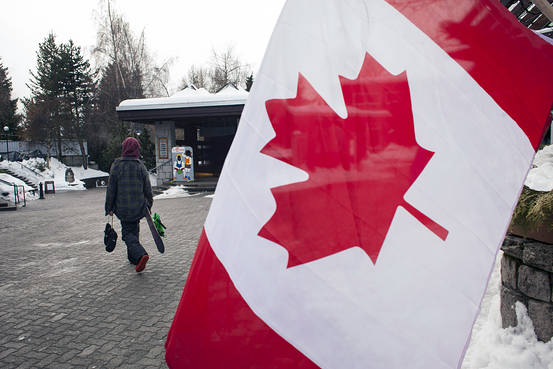051 8439995, 042 35911332

Canadian Immigration: International students may once again have an easier time becoming Canadian residents thanks to a new government at the country’s helm.
Canada’s Liberal Party, headed by Prime Minister Justin Trudeau, promised to create a more welcoming immigration program and to “fix the problems” created by his predecessor, Stephen Harper. Last week, they made good on that promise, introducing amendments to Canada’s Citizenship Act.
A key change would allow students to count each day they spend at university as a half day toward the “physical presence” requirement of citizenship, for up to one year. The amendment, which affects anyone on a work or study visa who is in Canada as a non-permanent resident, restores a provision scuttled by the Harper government in 2015.
Another change would cut the physical presence requirement for permanent residents who apply for citizenship to three out of five years instead of four out of six.
“The main point I think is that I want to do more to help international students become permanent residents because Canada needs immigrants,” Canada’s immigration minister, John McCallum, said at a news conference today. “We are an aging society. We need more immigrants for sure. I think international students are arguably the most fertile ground, the best place to find new immigrants because they know about Canada.”
Another hoped-for change to the so-called Express Entry system may also be in the works. Before January 2015, international students had a straight path to apply for permanent residency. After you finished university, you could apply for a post-graduate work permit and, after that, you could apply for permanent residency through a program called the Canadian Experience Class. Depending on your work experience, you could also apply for residency through other programs, like the Federal Skilled Worker Program.
Then the Harper government introduced Express Entry that, despite its name, puts international students into a larger and more competitive pool of candidates, according to the Canadian Bureau for International Students (CBIE). McCallum indicated changes are afoot.
“One of the main reasons for examining Express Entry is to try to make conditions easier for international students,” he said at the news conference. “I don’t know yet exactly what we will do,” he said, but added, they would look at various things “with a view to making permanent residency more accessible for international students.”
Canada gets about C$8 billion (US$6.02 billion) annually from international students through tuition and living expenses, CBIE says, so the changes should be good for the country. They should also be good for students, considering 51% of international students in Canada in 2014 planned to apply for permanent residence, CBIE says.
The U.S., U.K. and Australia have long been the favored destinations of international students, yet Canada is tied for 7th place with Japan, according to Unesco’s latest data from 2012. It has likely climbed the ranks since. There were 336,000 international students in Canada in 2014, a massive 83% jump from 2008.
Canada is also a popular destination for students from Asia. In 2014, 33% of international students were from China, 12% were from India and 6% were from South Korea.
Statistics for the fall of 2015 aren’t available yet to show whether the Harper government’s stringent immigration requirements affected enrollment. Yet data from CBIE’s 2015 survey of international students shows a slight uptick in the percentage who applied to study in countries other than Canada. CBIE spokeswoman Jacquelyn Hoult says stricter citizenship requirements aren’t likely behind the uptick. Still, it will be interesting to see what happens if McCallum’s proposals are approved by the Liberal Party-dominated parliament, as expected.
The real change many hope for is a revival of Canada’s once popular immigrant investor program, which gave you permanent residency if you had a net worth of C$1.6 million and provided a C$800,000 guaranteed, five-year interest-free loan to the government. The Harper government ended the program in 2015 and created a venture-capital pilot program. Applicants now need a net worth of at least C$10 million and must be “willing and able” to make a non-guaranteed investment of C$2 million in the Immigrant Investor Venture Capital Fund. If approved, your investment commitment is for about 15 years.
The immigrant investor program didn’t require you to know how to speak English or French, but the venture-capital pilot requires proficiency in one of those languages. Not surprisingly, the program isn’t popular. The government’s immigration arm is “looking at options and determining next steps,” says Nancy Caron, a spokeswoman for the government’s immigration office.
That could be a hopeful answer for thousands of mostly Chinese applicants with cancelled investment immigration applications. But if you have your sights set on Canada for now, the quickest path may be a college degree.
For more information about Canadian Immigration programs, please visit the company’s site at http://www.immigrationexperts.pk
Contact :
Immigration Experts
Tel: +92 308 5857777
E-mail: wecare@immigrationexperts.pk
